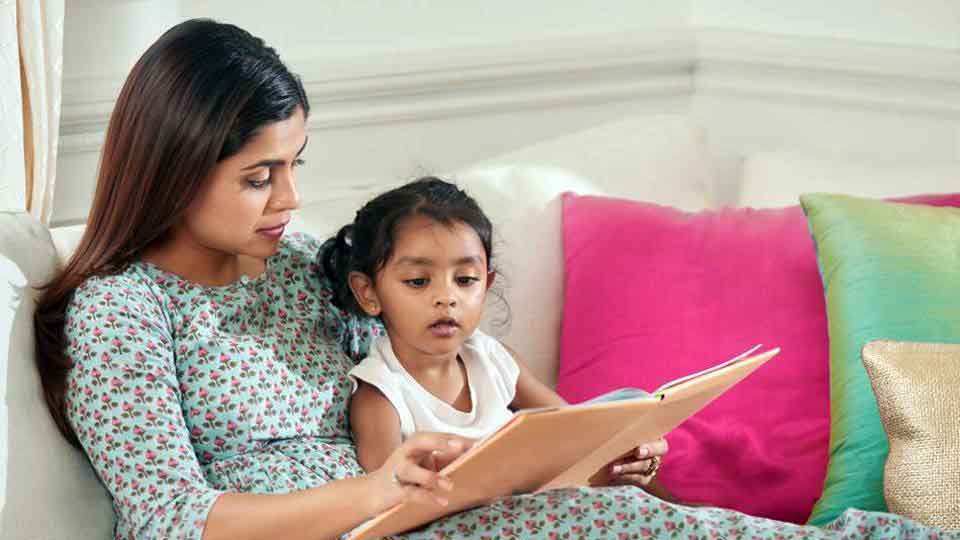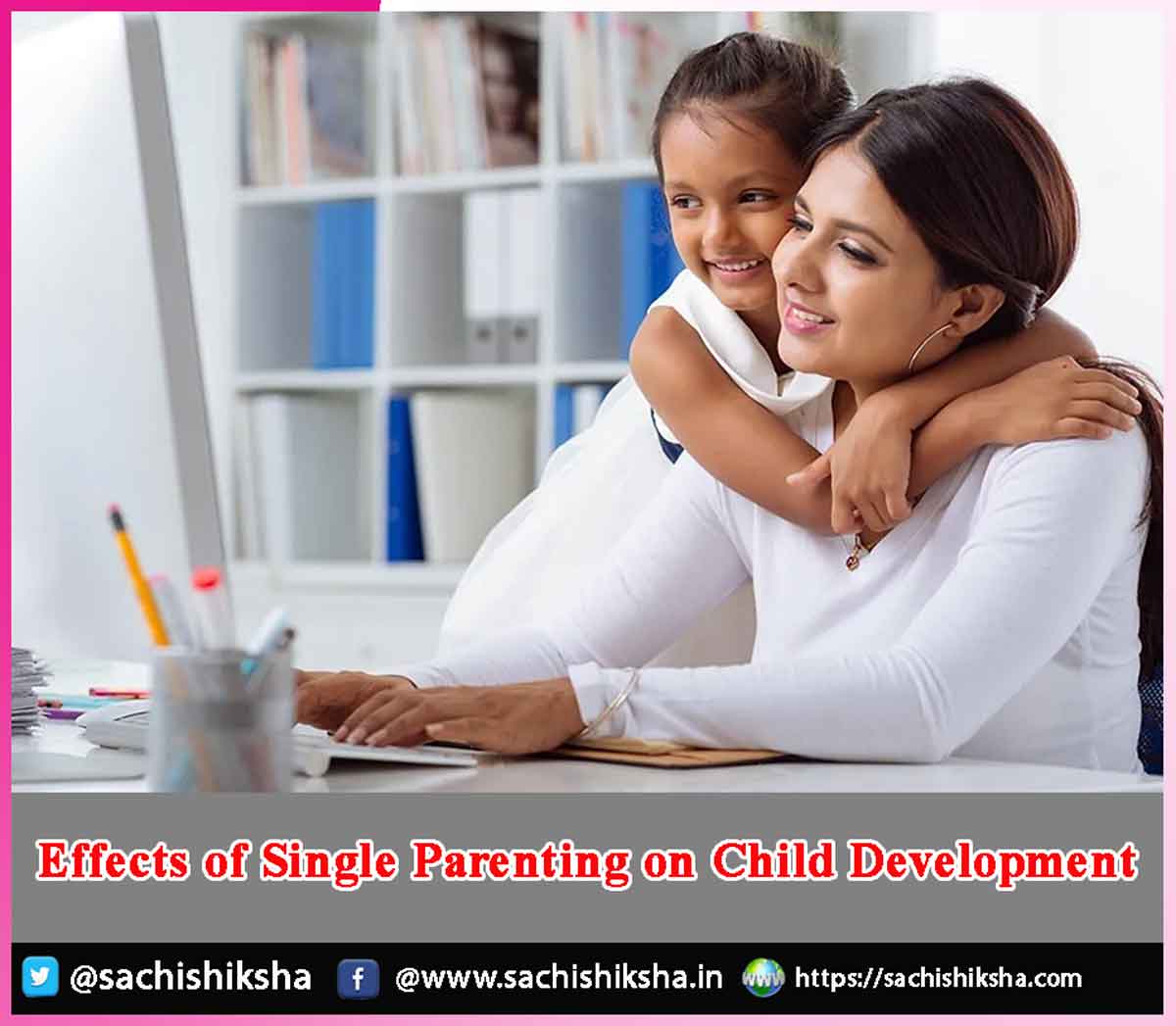Effects of Single Parenting on Child Development
Introduction: The effects of single parenting on child development have been extensively studied and discussed. With the rise of single-parent households globally, it is essential to understand how this family structure influences children across various developmental domains. While many single parents raise well-adjusted, successful children, challenges may arise that influence a child’s emotional, cognitive, and social development. This essay delves into both the potential benefits and challenges associated with single parenting and its effects on child development.
Table of Contents
Emotional and Psychological Development

Impact of Parental Stress:
Single parents often face heightened levels of stress as they handle the responsibility of parenting. Studies suggest that parental stress can impact a child’s emotional well-being, as children may internalize their parent’s stress, leading to issues such as anxiety, depression, or behavioural problems. These children may struggle to cope with emotions or develop adaptive skills due to limited emotional support.
Development of Resilience and Independence:
Interestingly, single parenting can also foster resilience and independence in children. Children in single-parent homes may adapt quickly to changes and take on responsibilities early. In the absence of a second parent, children often form closer bonds with the present parent and learn to navigate challenges with more resilience. In some cases, single-parent households can create environments that are nurturing and supportive, which can help children develop a strong sense of independence.
Cognitive and Academic Development
The cognitive and academic outcomes of children from single-parent families can be mixed and influenced by various factors, including the parent’s educational level, income, and level of involvement in the child’s education.
Academic Challenges:
Statistically, children from single-parent families are more likely to experience academic challenges. These may stem from financial constraints that limit access to quality educational resources, tutoring, or extracurricular activities that foster cognitive development. In addition, single parents may have limited time to assist with school work due to work responsibilities, which can affect the child’s academic progress and motivation.
Influence of Parental Involvement and Support
Despite these challenges, single parents who actively engage in their child’s education often witness positive academic outcomes. Research indicates that a supportive and involved single parent can significantly impact a child’s academic performance, sometimes outperforming children in two-parent households with less engaged parents. Single parents who emphasize education, establish routines, and provide educational support create an environment that encourages academic success.
Social Development
Social skills are crucial to a child’s overall development, and the family structure can influence how these skills are developed. Children in single-parent households may experience unique social dynamics that impact their interactions with peers and adults.
Social Challenges:
Children from single-parent families may sometimes face difficulties forming friendships or maintaining social connections, partly due to frequent moves or the parent’s limited time to facilitate social interactions. Additionally, societal stigmatization of single-parent families can negatively impact a child’s self-esteem, leading them to feel different or less accepted among peers from traditional families. This feeling of exclusion or insecurity may hinder their social skill development, making it challenging for them to form lasting friendships.
Strength in Building Relationships:
On the other hand, children from single-parent families often form strong, trusting relationships with their parent, which can lay a foundation for forming healthy bonds with others. The communication and problem-solving skills developed within a single-parent household can enable these children to navigate relationships with greater emotional intelligence. This close bond also provides children with a secure attachment, which can improve their social competence as they grow.
Behavioural Outcomes
Behavioural issues in children from single-parent families have been widely discussed. Factors like limited supervision, financial stress, and emotional challenges may contribute to behavioural problems.
Risk of Behavioural Issues
The studies have shown that children in single-parent households may be at a higher risk of exhibiting behavioural issues, such as aggression, hyperactivity, or defiance. The absence of a second authoritative figure can make it challenging for the single parent to enforce discipline, which may result in inconsistent boundaries. Additionally, children may act out in response to the emotional stress or insecurity they experience due to the family structure.
Positive Behavioural Adaptations:
However, children from single-parent homes can also exhibit positive behavioural adaptations. In a supportive single-parent environment, children may demonstrate higher levels of empathy, responsibility, and adaptability. The resilience and independence fostered in these households can positively shape a child’s personality, encouraging him to adopt responsible behaviour at an early age.
Economic Impact on Development
The economic circumstances of single-parent families significantly influence child development. Single-parent families are often more likely to face financial hardship due to a single income, which can limit resources for educational, social, and health-related needs.
Impact of Financial Constraints:
Economic strain in single-parent households may restrict access to quality education, healthcare, nutritious food, and extracurricular activities, all of which contribute to a child’s overall development. Financial insecurity can also lead to increased stress in the household, which may affect the child’s emotional and psychological well-being.
Value of Financial Planning and Resourcefulness:
Many single parents develop strong budgeting skills and resourcefulness to manage their household needs, and children can benefit from witnessing these skills. Observing a parent’s resourcefulness and resilience can help children appreciate the value of financial planning and develop a sense of gratitude and responsibility.
Role of Community and Social Support
The support system surrounding a single-parent family is a significant factor in determining the child’s developmental outcomes. Community, extended family, and school-based support can mitigate many of the challenges associated with single-parent households.
Impact of Community Involvement:
Community support in the form of after-school programs, social services, and mentorship opportunities can positively impact children from single-parent homes. Access to positive role models and social programs can help children overcome limitations that may arise from the absence of one parent, providing additional emotional and developmental support.
Extended Family Support:
In many cases, extended family members play an essential role in supporting single-parent families. Grandparents, aunts, uncles, or close family friends often step in to provide financial assistance, caregiving, or emotional support, creating a more nurturing environment. These additional family figures can enrich the child’s life by providing the stability, mentorship, and role models they need for balanced development.
Positive Aspects of Single Parenting on Child Development
Single parenting, while challenging, also presents unique opportunities for positive child development. Children in single-parent households often witness resilience, hard work, and adaptability that can shape their values and outlook on life. They learn the importance of supporting family members and develop a close, trusting relationship with the present parent, fostering a secure emotional base.
Self-Reliance and Emotional Maturity:
Children in single-parent households often take on additional responsibilities, fostering self-reliance and emotional maturity. They are more likely to learn household management skills and may develop a sense of empathy and sensitivity towards others’ struggles. The experience of overcoming challenges and adapting to circumstances can prepare them to navigate adulthood with strength and resilience.
Conclusion
The effects of single parenting on child development are multi-faceted, shaped by factors such as the parent-child relationship, economic circumstances, social support, and the individual resilience of both the parent and the child. While children in single-parent homes may face certain challenges, many also grow up to be resilient, responsible, and emotionally intelligent individuals. The impact of single parenting is not solely negative; it presents an environment where, with adequate support and nurturing, children can thrive.
Ultimately, while the traditional two-parent structure has its advantages, single parenting can produce equally positive developmental outcomes. A single parent’s commitment to fostering a supportive, stable, and loving environment is pivotal to ensuring their child’s overall well-being and success. Through dedicated effort, resourcefulness, and the support of community and family, single-parent households can provide a nurturing foundation that allows children to reach their full potential.













































